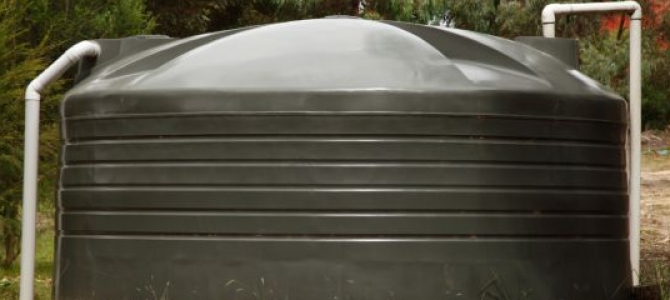 Shopping Cart
Shopping Cart
19 January 2024
5 Reasons Every Farmer Should Invest in a Water Tank

Investing in a water tank helps farmers save money on water bills, increase crop production, protect against drought, improve soil fertility, and create a more environmentally sustainable farm.
Water is the lifeblood of agriculture, and with erratic weather patterns becoming increasingly prevalent around the globe, farmers are feeling the pressure to ensure a reliable water supply for their crops and livestock. This concern is particularly pressing in regions such as New Zealand, Australia, and the USA, where agriculture plays a significant role in the national economy.
The solution? Investing in a water tank.
Here are five compelling reasons every farmer in these regions should consider this crucial investment.
1. Save money on water bills
Having a large water tank on your farm can significantly reduce your dependence on the main water supply, thereby substantially decreasing your water bills.
Rainwater is a free, natural resource that every farmer should consider harnessing. With a water tank in place, you're able to collect, store, and use rainwater for various farming activities including irrigation, watering livestock, cleaning barns, and even washing farm vehicles.
This not only saves you money but also ensures you have a reliable water source during times of water restrictions or droughts. By making the smart, one-time investment in a water tank, you're securing a future of self-sufficiency, significant cost reductions, and a more sustainable approach to farming.
Rising Water Costs Amplify the Need for Water Tanks
In recent years, both New Zealand and Australia have experienced a marked increase in water costs. In New Zealand, for instance, the government has initiated water charges for commercial users, a change that has significantly affected the farming sector. Simultaneously, Australia's water prices have surged due to the ongoing drought and subsequent water scarcity, placing additional pressure on farmers who are already grappling with challenging conditions.
In the USA, the rising costs are particularly noticeable in the arid western states, where water scarcity is a perennial issue. The combination of drought, population growth, and ageing infrastructure has led to increased prices, putting a further strain on the agricultural sector.
Investing in a water tank becomes an increasingly attractive option when taking these escalating costs into account. The ability to collect and store rainfall provides farmers with an alternate water source, buffering them against the financial impact of rising water prices. The one-time investment in a water tank can lead to significant long-term savings, making it an essential consideration for farmers in these regions.
2. Increase crop production
With easy access to a reliable source of water, farmers can increase their crop production and make more profit.
Farmers who have their own water storage facilities are not solely reliant on natural rainfall patterns or public water supplies to water their crops. With a water tank, they gain the ability to control when and how much water their crops receive. This can significantly increase crop yields, particularly during drier periods when rainfall may be scarce.
Water tanks also allow for the collection and storage of rainwater during periods of heavy precipitation. This water can then be used during drier periods to supplement natural rainfall, ensuring that crops receive a consistent supply of water. This level of control over irrigation can prevent crop loss during droughts and also enable farmers to grow more water-intensive crops that might not otherwise be viable.
Additionally, the use of water tanks can lead to improved crop quality. By controlling the amount and timing of watering, farmers can optimise growing conditions and reduce the risk of diseases that thrive in overly wet conditions.
The strategic use of water tanks allows farmers to maximise their crop production and increase profitability even in the face of challenging environmental conditions. They are, therefore, a valuable investment for any farmer looking to future-proof their farming operations.
3. Protect against drought
A water tank gives farmers the ability to store large amounts of water in times of drought, keeping their crops and livestock safe.
Droughts can be devastating for farmers, leaving them with inadequate water to support their crops and livestock. The consequences can be severe, leading to decreased crop yields and potential livestock loss. Investing in water tank storage facilities can afford farmers a level of protection against these unpredictable weather conditions.
Water tanks facilitate the storage of large volumes of water which can be used during dry spells. This means that in times of water scarcity or strict water restrictions, farmers can continue to irrigate their crops and provide water for their livestock from the reserves collected in their tanks. Consequently, the impact of drought on their operations is considerably mitigated.
Furthermore, the ability to store water in anticipation of droughts means that farmers can plan their planting and livestock rearing more effectively. They can make informed decisions about the types of crops to plant and the amount of livestock to rear based on the water they have available, reducing the risk of losses.
As such, water tanks serve as an invaluable tool in a farmer's arsenal, providing a buffer against the harsh impacts of drought and ensuring the sustainability of their farming operations.
4. Improve land fertility
Collected rainwater often contains essential minerals and nutrients that can help improve the fertility of farmland.
Rainwater, unlike treated water, is free from chemicals such as chlorine and fluoride, which are typically found in municipal water supplies. These chemicals can, over time, degrade soil quality and impede plant growth. Instead, rainwater includes beneficial nutrients and minerals such as nitrogen and phosphorus, which are naturally dissolved in the atmosphere.
Using collected rainwater for irrigation can thus contribute to the enhancement of soil fertility. As the rainwater permeates the soil, it deposits nutrients that are key to plant health and growth, improving the overall productivity of the farmland. This method of irrigation can be especially beneficial for farmers practising organic farming or those seeking to reduce their dependence on chemical fertilisers.
Moreover, including rainwater harvesting systems in farming practices can lead to the creation of a more sustainable and self-sufficient agricultural operation. By utilising the nutrient-rich rainwater, farmers can cut down on costs associated with purchasing and transporting artificial fertilisers, while at the same time promoting the health and productivity of their farmland.
Rainwater collection systems, like water tanks, not only provide farmers with a valuable water source during times of drought but also contribute to improving the fertility of their land, making them a worthwhile investment for any farmer.
5. Create an environmentally-friendly farm
Using a rainwater tank instead of relying solely on tap or bottled water is better for the environment and helps reduce your farm's carbon footprint.
Transitioning from conventional farming methods to environmentally friendly practices can seem daunting, but simple steps can make a significant impact. The use of rainwater tanks is one such measure that can extensively contribute to creating a sustainable farm. Besides being an excellent source of irrigation water, these tanks can significantly reduce your dependence on municipal water supplies, which are often energy-intensive to process and transport.
Moreover, an environmentally friendly farm isn't just about sustainable water use. It's a holistic approach that encompasses everything from using organic fertilisers to creating habitats for local wildlife, promoting biodiversity. Organic fertilisers made from natural waste material such as compost or manure can significantly enhance soil fertility without the harmful side effects associated with chemical fertilisers.
Additionally, creating habitats for local wildlife can boost your farm's biodiversity, promoting a balanced ecosystem where pests and beneficial insects can keep each other in check. This approach can help reduce your reliance on chemical pest control methods, further decreasing the environmental impact of your farming practices.
Transitioning towards an environmentally friendly farm doesn't need to be a strenuous process. With measures like rainwater harvesting and organic farming, you can gradually shift towards sustainable farming practices, benefiting both the environment and your farm's productivity.
How technology is helping farmers embrace water tanks as a viable water resource
Technological advancements are revolutionising the agricultural sector, especially in the field of water resource management. The advent of smart technologies, such as those deployed by Smart Water, is enabling farmers to efficiently utilise water tanks as a sustainable water resource.
Smart Water's remarkable technology allows farmers to monitor and manage their water resources remotely. With the support of sensors and IoT (Internet of Things) devices installed in the tanks, farmers can keep track of water levels, temperature, and quality in real time. This real-time data keeps the farmers informed about any potential issues, like leaks or contamination, allowing them to take immediate action.
Moreover, Smart Water's technology is equipped with predictive analytics which employ machine learning algorithms to analyse historical data and predict future water usage patterns. This predictive analysis helps farmers to optimally manage their water resources, particularly during periods of drought or high water demand.
In summary, the integration of technology in farming practices is playing an instrumental role in promoting water tanks as a viable and sustainable water resource. Through improved monitoring and efficient management of water resources, farmers are not only safeguarding their productivity but also contributing to the preservation of the environment.
Frequently Asked Questions
How does investing in a water tank help farmers save money?
By collecting and storing rainwater, farmers can reduce their reliance on municipal water supplies, lowering water bills especially in areas where commercial water charges are rising, like New Zealand, Australia, and the USA.
Can a water tank really improve crop production?
Yes. Water tanks provide a consistent and controllable water source, allowing for better irrigation scheduling. This can lead to higher yields, improved crop quality, and the ability to grow water-intensive crops even during dry periods.
How do water tanks help during droughts?
Water tanks store rainwater that can be used during droughts or water restrictions. This stored water can support both crops and livestock, reducing the impact of dry spells and helping farmers maintain productivity.
